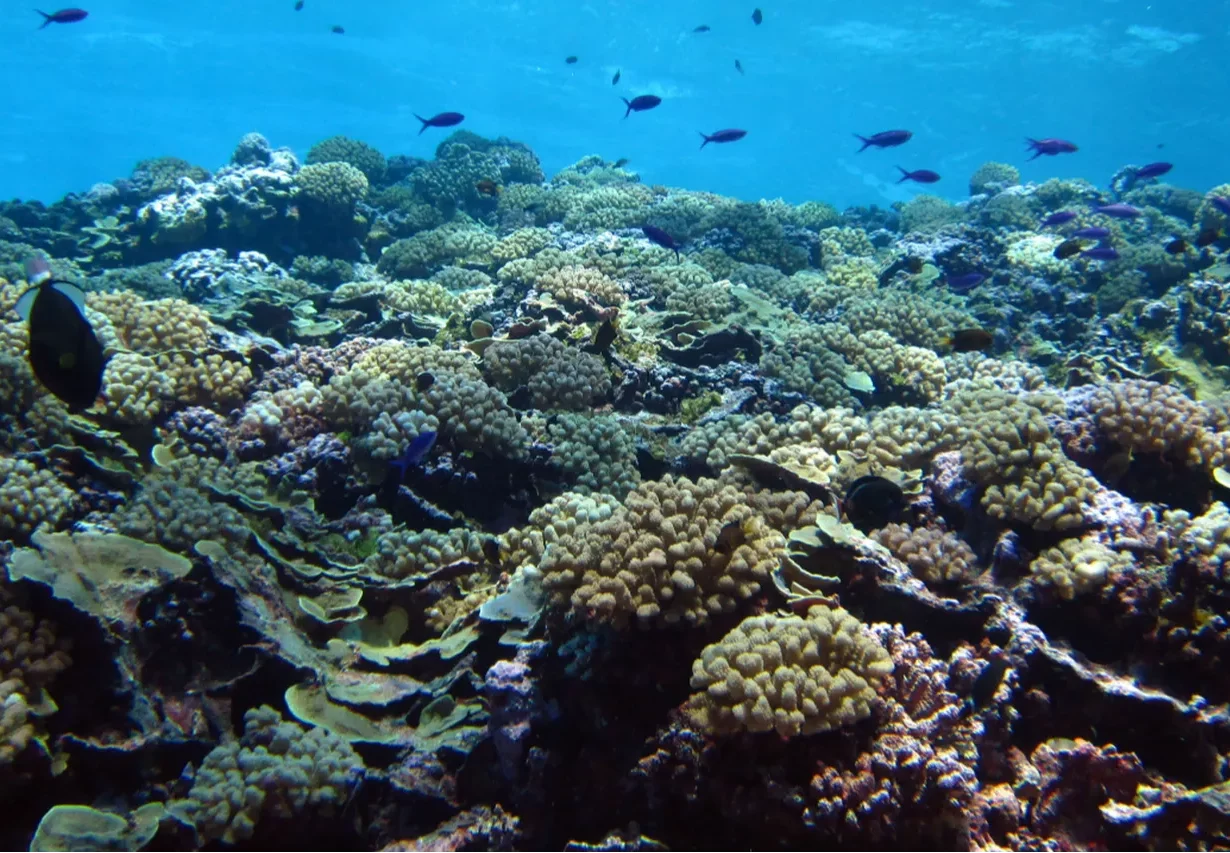The World of Deeper.com
Deeper.com is an innovative online platform that provides users with a unique opportunity to explore the wonders of the ocean through immersive virtual reality experiences. By leveraging cutting-edge technology, Deeper.com allows users to dive deep into underwater realms and witness marine life in its natural habitat. Core Principles Deeper.com is guided by a set of core principles that drive its mission to connect people with the beauty and importance of marine ecosystems. These principles include:- Education: Deeper.com aims to promote understanding and awareness of the marine environment by providing interactive educational content.
- Accessibility: The platform strives to make the ocean accessible to everyone, breaking down barriers and allowing people from all walks of life to experience its wonders.
- Conservation: Deeper.com is committed to raising awareness about the importance of marine conservation and sustainability.
- Virtual Reality Experiences: Users can dive beneath the surface and immerse themselves in realistic underwater environments.
- Educational Content: Deeper.com offers a wealth of educational material, including information about marine life, ecosystems, and conservation efforts.
- Community: Users can connect with fellow ocean enthusiasts, share experiences, and engage in discussions about marine conservation.
- Education: It can be used as an educational tool to supplement classroom learning and provide a hands-on experience of marine ecosystems.
- Research: Scientists and researchers can utilize Deeper.com to study marine life, habitats, and behavior without the need for expensive and time-consuming field trips.
Unleashing the Power of Technology
Deeper.com harnesses the power of technology to bring the wonders of the ocean to users worldwide. Through its innovative virtual reality experiences, educational content, and community engagement, Deeper.com is revolutionizing the way people learn about and connect with marine ecosystems.Core Principles and Key Components
At its core, Deeper.com is driven by the principles of education, accessibility, and conservation. By providing immersive virtual reality experiences, the platform aims to engage users and promote a deeper understanding of marine life. Its key components include:- Virtual Reality Experiences: Deeper.com offers a wide range of virtual reality experiences, allowing users to explore underwater ecosystems, encounter marine species, and witness breathtaking underwater scenes.
- Educational Content: The platform provides educational resources such as interactive lessons, informative videos, and engaging quizzes, enhancing users’ knowledge and awareness about marine conservation.
- Community Engagement: Deeper.com fosters a vibrant community where users can connect, share their experiences, and participate in discussions about marine conservation.
Practical Applications and Future Developments
Deeper.com has practical applications in various fields, including education, research, and tourism. It provides a unique opportunity for students and researchers to study marine ecosystems in a safe and controlled environment. Additionally, it offers a virtual tourism experience, allowing individuals to explore the depths of the ocean without physical limitations. In the future, we can expect advancements in virtual reality technology, making the experiences even more immersive and lifelike. There is also potential for collaborations with marine research institutions and conservation organizations to further enhance the educational and scientific aspects of Deeper.com.Notable Variations and Related Concepts
While Deeper.com is a pioneer in its field, there are other platforms and technologies with similar goals. Some notable variations include:- Augmented Reality (AR): Unlike virtual reality, which creates a fully immersive experience, AR overlays digital information onto the real world. This technology has potential applications in marine research and navigation.
- Mixed Reality (MR): MR combines elements of virtual and augmented reality, allowing users to interact with both virtual and real objects. This technology has potential applications in underwater archaeological research and marine exploration.
Explore the Marine World from Home
With Deeper.com, users can immerse themselves in the captivating wonders of the ocean without leaving their homes. This innovative online platform leverages the power of virtual reality to provide a unique marine exploration experience. Through its cutting-edge technology and vast collection of virtual reality experiences, Deeper.com brings the beauty and essence of marine ecosystems to life. Core Principles: Deeper.com is driven by the principles of education, accessibility, and conservation. It aims to educate users about the importance of marine ecosystems, make marine knowledge accessible to all, and promote conservation efforts worldwide. Key Components: The platform offers a wide range of virtual reality experiences, from diving with sharks to exploring coral reefs. It also features educational resources, including interactive lessons and informative articles. Additionally, a vibrant community allows users to connect and participate in discussions about marine conservation. How It Operates: Deeper.com utilizes advanced virtual reality technology to create a realistic and immersive environment for users. Through the use of VR headsets, users can dive into the depths of the ocean, interact with marine life, and gain a deeper understanding of marine ecosystems. Practical Applications: Deeper.com has practical applications in education, research, and tourism. It provides a safe and controlled environment for studying marine ecosystems, making it a valuable tool for educators and researchers. Additionally, it offers a unique virtual tourism experience, allowing users to explore the ocean’s wonders from the comfort of their homes. Future Developments: The future of Deeper.com holds advancements in virtual reality technology, potential collaborations with marine research institutions and conservation organizations, as well as the exploration of related concepts such as augmented reality and mixed reality. These developments will further enhance the immersive and educational experiences offered by the platform. Without a concluding paragraph.A Journey through Time
Deeper.com takes users on an immersive journey through time with its virtual reality experiences. By harnessing advanced technology, users can explore different periods in history and witness the evolution of marine ecosystems. From the ancient seas of the prehistoric era to the vibrant coral reefs of the present day, Deeper.com offers a diverse range of experiences. Through these virtual reality adventures, users can gain a deeper understanding of how marine life has evolved and adapted over millions of years. They can witness firsthand the impacts of environmental changes, human activities, and conservation efforts on the world’s oceans. With each experience, Deeper.com aims to educate users about the importance of marine conservation and inspire them to take action. By immersing themselves in these virtual worlds, users develop a sense of connection and responsibility towards the oceans and its inhabitants. As users embark on their journey through time, they can interact with a community of like-minded individuals, share their experiences, and engage in discussions about marine conservation. This vibrant community fosters a sense of shared purpose and encourages users to contribute to ongoing conservation efforts. In the future, Deeper.com plans to expand its offerings, collaborating with marine research institutions and conservation organizations to create more comprehensive and accurate virtual reality experiences. It also aims to explore concepts such as augmented reality and mixed reality, further enhancing the immersive and interactive nature of its platform. Through its innovative technology and commitment to education and conservation, Deeper.com provides users with a unique opportunity to explore the wonders of the ocean and contribute to the preservation of marine ecosystems. No conclusion paragraph is needed as the article continues to flow seamlessly into the next section. Important: Deeper.com offers virtual reality experiences that allow users to explore different periods in history and witness the evolution of marine ecosystems. The platform aims to educate users about marine conservation and inspire action. It plans to collaborate with research institutions and explore augmented reality and mixed reality concepts in the future.Understanding Marine Ecosystems
Marine ecosystems are complex and dynamic systems that support a diverse array of marine organisms and play a critical role in maintaining the health of our planet. These ecosystems encompass a vast range of habitats, including coral reefs, mangrove forests, estuaries, and deep-sea trenches.Key Components of Marine Ecosystems
- Producers: Marine ecosystems rely on photosynthetic organisms such as algae and seagrasses, which convert sunlight into energy and serve as the foundation of the food chain.
- Consumers: From herbivores to apex predators, marine ecosystems are populated by a wide variety of organisms that feed on other organisms as a source of energy.
- Decomposers: Decomposers break down dead organic matter, recycling nutrients back into the ecosystem.
Operating Principles
Marine ecosystems operate based on interconnected relationships and processes. These ecosystems are influenced by factors like temperature, salinity, nutrient availability, and sunlight. The interactions between organisms and their environment contribute to the overall health and functionality of marine ecosystems.Types of Marine Ecosystems
- Coral Reefs: Known as the “rainforests of the sea,” coral reefs are biodiverse habitats formed by colonies of coral polyps. They provide crucial habitat for numerous marine species.
- Mangrove Forests: Found along tropical and subtropical coastlines, mangrove forests protect coastlines, provide breeding grounds for many species, and sequester carbon dioxide.
- Estuaries: Where rivers meet the sea, estuaries are highly productive and serve as nurseries for many marine organisms.
Practical Applications
Understanding marine ecosystems is vital for effective conservation strategies. By studying these ecosystems, scientists can gain insights into the impacts of climate change, pollution, and overfishing. This knowledge can inform policies and management practices to ensure the sustainable use of marine resources.Challenges and Future Developments
Marine ecosystems face numerous challenges, including habitat destruction, pollution, and the impacts of climate change. Efforts are underway to establish marine protected areas, develop sustainable fishing practices, and reduce pollution to preserve and restore these ecosystems. The use of emerging technologies, such as remote sensing and artificial intelligence, also holds promise for advancing marine ecosystem research and conservation.- Deep-Sea Ecosystems: These are found in the darkest depths of the ocean where unique




Leave a Reply